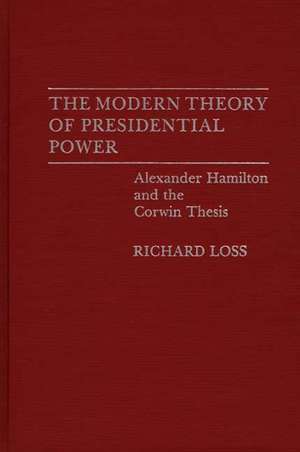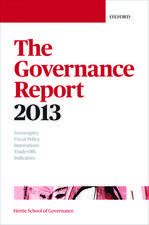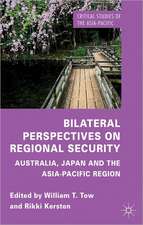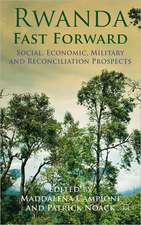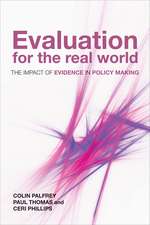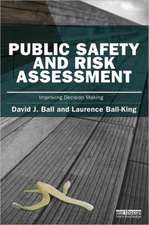The Modern Theory of Presidential Power: Alexander Hamilton and the Corwin Thesis: Contributions in Political Science
Autor Richard Lossen Limba Engleză Hardback – 26 iun 1990 – vârsta până la 17 ani
Din seria Contributions in Political Science
- 38%
 Preț: 438.51 lei
Preț: 438.51 lei - 27%
 Preț: 441.64 lei
Preț: 441.64 lei - 28%
 Preț: 436.80 lei
Preț: 436.80 lei - 38%
 Preț: 437.47 lei
Preț: 437.47 lei - 38%
 Preț: 345.58 lei
Preț: 345.58 lei - 24%
 Preț: 460.68 lei
Preț: 460.68 lei - 27%
 Preț: 444.08 lei
Preț: 444.08 lei - 38%
 Preț: 437.84 lei
Preț: 437.84 lei - 22%
 Preț: 231.81 lei
Preț: 231.81 lei - 38%
 Preț: 436.57 lei
Preț: 436.57 lei - 27%
 Preț: 346.07 lei
Preț: 346.07 lei - 27%
 Preț: 345.74 lei
Preț: 345.74 lei - 28%
 Preț: 436.99 lei
Preț: 436.99 lei - 38%
 Preț: 345.30 lei
Preț: 345.30 lei - 28%
 Preț: 437.91 lei
Preț: 437.91 lei - 23%
 Preț: 171.93 lei
Preț: 171.93 lei - 28%
 Preț: 344.63 lei
Preț: 344.63 lei - 27%
 Preț: 437.84 lei
Preț: 437.84 lei - 38%
 Preț: 438.41 lei
Preț: 438.41 lei - 23%
 Preț: 223.20 lei
Preț: 223.20 lei - 28%
 Preț: 437.57 lei
Preț: 437.57 lei - 38%
 Preț: 346.00 lei
Preț: 346.00 lei - 27%
 Preț: 346.50 lei
Preț: 346.50 lei - 28%
 Preț: 438.07 lei
Preț: 438.07 lei - 27%
 Preț: 439.09 lei
Preț: 439.09 lei - 38%
 Preț: 436.99 lei
Preț: 436.99 lei - 28%
 Preț: 435.65 lei
Preț: 435.65 lei - 38%
 Preț: 438.17 lei
Preț: 438.17 lei - 38%
 Preț: 346.25 lei
Preț: 346.25 lei - 23%
 Preț: 229.50 lei
Preț: 229.50 lei - 27%
 Preț: 440.79 lei
Preț: 440.79 lei - 38%
 Preț: 345.83 lei
Preț: 345.83 lei - 38%
 Preț: 438.00 lei
Preț: 438.00 lei - 28%
 Preț: 437.84 lei
Preț: 437.84 lei - 38%
 Preț: 436.99 lei
Preț: 436.99 lei - 27%
 Preț: 438.67 lei
Preț: 438.67 lei - 28%
 Preț: 438.07 lei
Preț: 438.07 lei - 11%
 Preț: 356.63 lei
Preț: 356.63 lei - 28%
 Preț: 438.00 lei
Preț: 438.00 lei - 32%
 Preț: 231.69 lei
Preț: 231.69 lei - 38%
 Preț: 438.41 lei
Preț: 438.41 lei - 28%
 Preț: 461.11 lei
Preț: 461.11 lei - 32%
 Preț: 231.89 lei
Preț: 231.89 lei - 19%
 Preț: 182.01 lei
Preț: 182.01 lei - 38%
 Preț: 436.47 lei
Preț: 436.47 lei - 38%
 Preț: 439.17 lei
Preț: 439.17 lei - 38%
 Preț: 437.07 lei
Preț: 437.07 lei
Preț: 363.89 lei
Preț vechi: 556.30 lei
-35% Nou
Puncte Express: 546
Preț estimativ în valută:
69.63€ • 71.95$ • 57.93£
69.63€ • 71.95$ • 57.93£
Carte tipărită la comandă
Livrare economică 19 martie-02 aprilie
Preluare comenzi: 021 569.72.76
Specificații
ISBN-13: 9780313267512
ISBN-10: 0313267510
Pagini: 192
Dimensiuni: 156 x 235 x 13 mm
Greutate: 0.45 kg
Ediția:New.
Editura: Bloomsbury Publishing
Colecția Praeger
Seria Contributions in Political Science
Locul publicării:New York, United States
ISBN-10: 0313267510
Pagini: 192
Dimensiuni: 156 x 235 x 13 mm
Greutate: 0.45 kg
Ediția:New.
Editura: Bloomsbury Publishing
Colecția Praeger
Seria Contributions in Political Science
Locul publicării:New York, United States
Notă biografică
RICHARD LOSS is an independent political scientist. He has edited and written introductions to Corwin on the Constitution, Vols. I-III, Presidential Power and the Constitution: Essays by Edward S. Corwin, Alexander Hamilton and James Madison's Letters of Pacificus and Helvidius with the Letters of Americanus, and Friedrich von Gentz's The Origin and Principles of the American Revolution Compared with the Origin and Principles of the French Revolution.
Cuprins
PrefaceIntroductionHamilton and WashingtonAlexander Hamilton's Understanding of the American Regime and the PresidencyThe Political Thought and Conduct of President George WashingtonRevisionist Presidents and Revisionist Scholars of the PresidencyAbraham LincolnTheodore RooseveltWoodrow Wilson and Franklin D. RooseveltScholarly Opinions of Presidential Power: Edward S. Corwin, Clinton Rossiter and Richard E. NeustadtSelected BibliographyIndex
